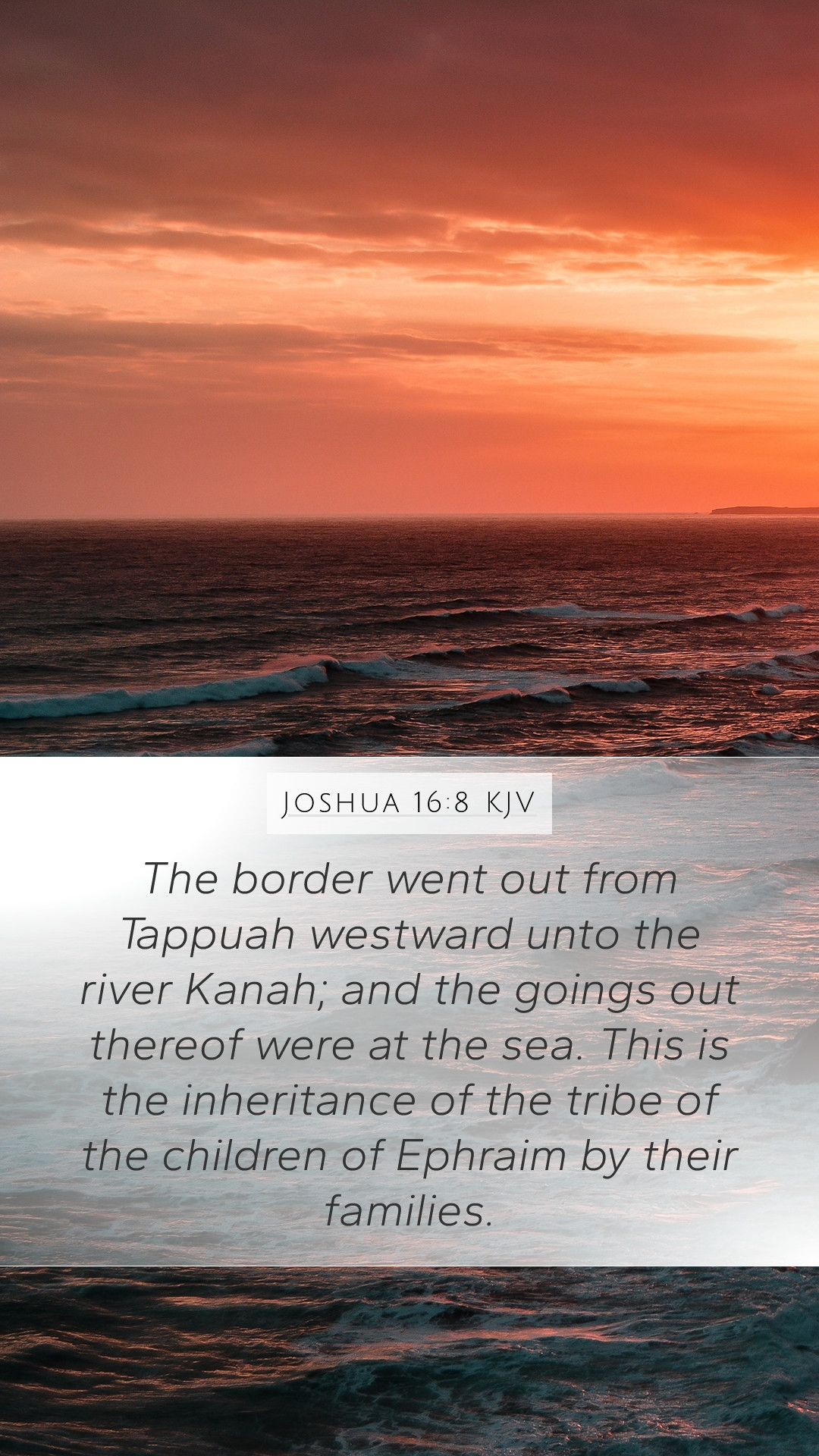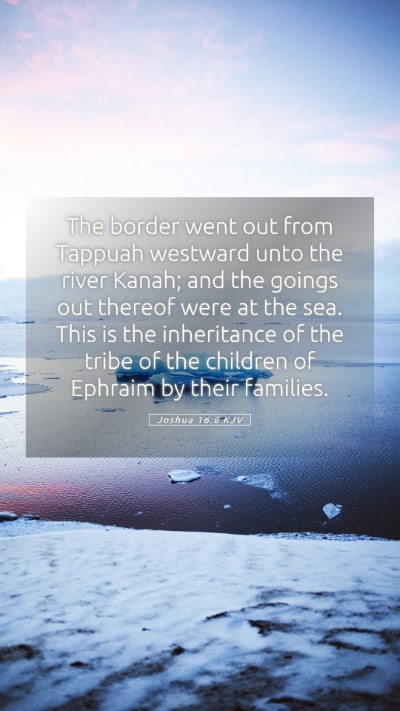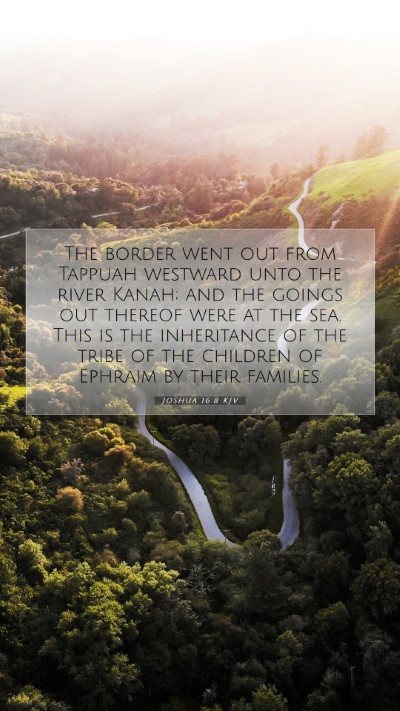Old Testament
Genesis Exodus Leviticus Numbers Deuteronomy Joshua Judges Ruth 1 Samuel 2 Samuel 1 Kings 2 Kings 1 Chronicles 2 Chronicles Ezra Nehemiah Esther Job Psalms Proverbs Ecclesiastes Song of Solomon Isaiah Jeremiah Lamentations Ezekiel Daniel Hosea Joel Amos Obadiah Jonah Micah Nahum Habakkuk Zephaniah Haggai Zechariah MalachiJoshua 16:8 Meaning
What is the meaning of Joshua 16:8?
The border went out from Tappuah westward unto the river Kanah; and the goings out thereof were at the sea. This is the inheritance of the tribe of the children of Ephraim by their families.
Joshua 16:8 Bible Verse Meaning
Bible Verse Commentary on Joshua 16:8
Verse: Joshua 16:8 - "The border went up toward Debir from the valley of Achor, so northward, turning toward Gilgal, which is across from the valley of Adumim; and the border went down to the stone of Bohan the son of Reuben."
This verse concludes the description of the territory allotted to the tribe of Ephraim and reiterates the importance of geographical boundaries in understanding the inheritance of the Israelites.
Meaning of Joshua 16:8
Joshua 16:8 holds significant meaning within the broader context of biblical geography and the history of the Israelite tribes. Various public domain commentaries provide insights into this verse:
-
Matthew Henry's Commentary:
Henry emphasizes the meticulous care taken in delineating the boundaries of the lands given to the tribes. He points out that these borders were clearly marked to prevent future disputes and to ensure each tribe understood their God-given inheritance. The mention of specific locations like Debir and Gilgal highlights the historical and spiritual significance of these areas.
-
Albert Barnes' Notes:
Barnes notes that the verse showcases the strategic placement of the tribal borders as a means of establishing claim to the land. The mention of Achor's valley and the reference to Bohan helps readers to understand the geographical landscape as it relates to the people of Israel. Barnes implies that understanding these locations is key to interpreting the events that transpired within them.
-
Adam Clarke's Commentary:
Clarke expounds upon the cultural and historical implications of these borders. He emphasizes that the land was not only a physical inheritance but also a representation of God's promises to His people. The mention of Bohan signifies a connection to the line of Reuben and gives testament to the ongoing narrative of the twelve tribes' historical journey.
Significance of Setting Boundaries
Understanding the setting of boundaries in Joshua 16:8 is essential for several reasons:
-
Biblical Exegesis:
The exegesis of this passage illustrates the covenantal relationship between God and Israel. It symbolizes the faithfulness of God in providing for His people by delineating their inheritance.
-
Scripture Analysis:
Analyzing these geographical features allows for a deeper understanding of subsequent events in Israel's history, including battles, settlements, and prophetic fulfillments.
Application and Reflection
In applying this verse to daily life, one might consider how God sets boundaries in our lives to guide and protect us:
-
Understanding Scripture:
Recognizing God’s authority in defining our pathways can assure us that He has a plan for each individual beyond mere geographical locations.
-
Personal Inheritance:
Just as the tribes of Israel were given land, believers today can reflect on their spiritual inheritance and how they steward the blessings God has given them.
Related Bible Cross References
- Joshua 15:7-9: Describes the border of Judah and its significance.
- Numbers 34:1-15: Details on the allotment of land for the tribes of Israel.
- Joshua 18:11: Further boundaries and inheritance discussions.
Conclusion
Joshua 16:8 serves as a vital component in the understanding of Israel's territorial inheritance. The verse not only provides historical data but also invites believers to contemplate God's provision and guidance in their own lives. By studying verses like this one, individuals can glean valuable Bible study insights that are integral to appreciating the narrative of Scripture.


